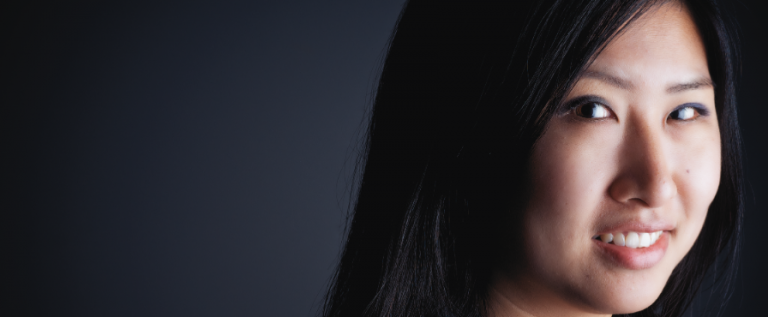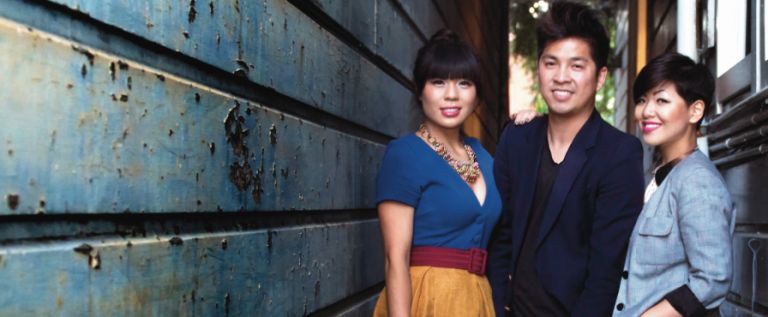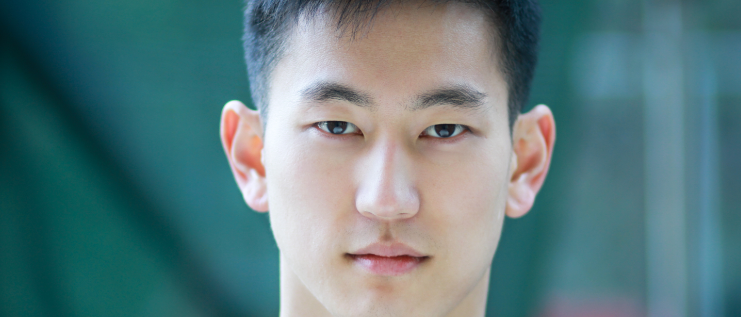Esther Paik Goodhart
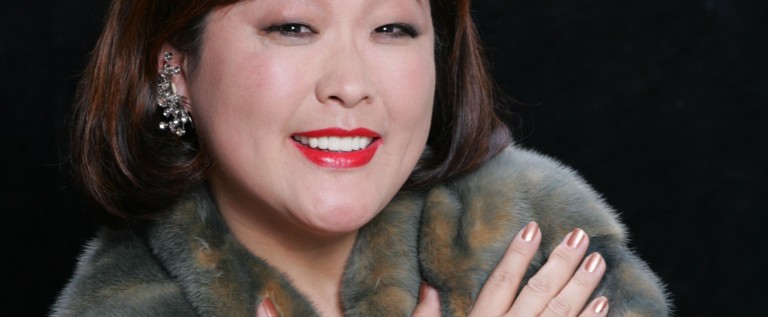
Turning every obstacle into a motivator, Esther Paik Goodhart is a Korean-Jewish comedian and mother of two. ALIST Columnist Svetlana Kim sits down with Esther to learn more about her journey.
SK: Let’s talk about being Korean-Jewish. You were born in Texas to traditional Korean parents. Your father was a famous Korean Presbyterian Minister and your Mom was actively involved with community. There were few Korean families in Texas back then. What do you remember the most?
EG: I was born in Fort Worth, Texas in 1956. I remember dust and tumbleweed all around. There were no tall buildings or even sidewalks. To get to the church from the car we walked on wooden boards. To my parents, who were students then, this was paradise because it wasn’t war-torn Korea. We were the ONLY Asians back then. People would ask me, “So, are you Chinese or Japanese?” I’d say, “I’m Korean.” They’d ask, “Oh, is that in China or Japan?”
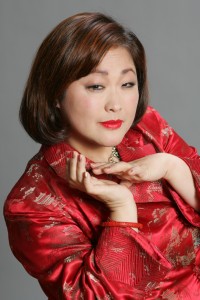 But mostly I remember how kind people were to me. They thought I was so cute! I WAS cute! I was polite. My parents taught me to kiss people on command (old folks especially loved being kissed). I smiled and laughed all the time. I’m exactly the same now as I was 55 years ago, except I wear high heels now.
But mostly I remember how kind people were to me. They thought I was so cute! I WAS cute! I was polite. My parents taught me to kiss people on command (old folks especially loved being kissed). I smiled and laughed all the time. I’m exactly the same now as I was 55 years ago, except I wear high heels now.
SK: You told me your disability, born with a neurological movement disorder. Despite it all, you are one of the most upbeat people I know. Where do you get your energy and inspiration?
EG: I have a physical handicap called Familial Dystonia. It is a neurological disorder that causes pain, flailing and tremors. I never said, “Oh, why me? Why did I have to have this suffering?” My parents thought I was God’s punishment to them because I needed so much medical care and attention. They would say to me, “You are God’s curse to us. You were a mistake!” I’d respond, “God made me. God is perfect. So I am perfect.” I was very aware of God’s presence in my heart. I was always very grateful for my life. Yes, I have a terrible handicap but I am grateful that I have this handicap in America where I can get the best care. I am grateful that my teachers and doctors thought I was brave and smart and talented and encouraged me to find my voice and do something with the gifts God gave me. I am grateful that I was smart enough to marry my husband who gave me 2 excellent boys, I am grateful that I, still handicapped, can go from sitting in a wheelchair to performing stand-up…in heels! My energy and inspiration comes from God who opens my eyes to all possibilities.
SK: Esther, you teach Hebrew classes? Where did you learn Hebrew?
EG: I teach Hebrew classes because my kids hated to go to Hebrew school. I became a Bat Mitzvah when I turned 40 years old. In 3 months I went to Temple every day and I learned to read Hebrew and chant my Torah and Haftorah portions. I learned so quickly because Hebrew is so similar to Korean: they’re both languages of coughing and spitting. I knew that I could teach my kids Hebrew in a fun way (they went to Hebrew school and Korean school at the same time). I told my kids that I would teach them until they became a Bar Mitzvah and then I would retire. My kids said, “No you can’t quit. What about the OTHER kids?!” I’ve been teaching for 16 years.
SK: You love to cook. You cook Korean-Jewish food? Your husband’s parents were from Russia. What’s your favorite dish?
EG: I looooove to cook! The Korean/Jewish shame is: you invite 10 people over for dinner and you didn’t prepare for 500. My Korean Banquet Shabbot dinners are legendary: it’s Jewish cuisine, I add soy sauce and everyone thinks I’m a genius.
I also loooove Russian cuisine. My favorite dish: Borscht. Cold, hot, savory, sweet. I love a boiled potato in it. I love sour cream in it. Don’t forget a side of dark, Russian bread on the side with a brick of butter. That’s how I got my big, fat butt. I didn’t get my hips from eating celery.
SK: You are too much fun, Esther! When did you discover your passion and natural gifts?
EG: I always knew God gave me the gift to love, forgive, help others, be curious, be happy since I was born. It didn’t come out, full force, until I was in high school when my teachers gave me the power to find and use my voice and be proud of my ability to help others. And my Dr. Geller, who diagnosed my handicap and acknowledged that, indeed, I am smart and a blessing on this earth and in the eyes of God.
SK: Do you think that we broke the ceiling? What advice would you give to young professional women today?
EG: Women have not broken the ceiling. I feel the ceiling is made out of lead and there is Crazy Glue on the floor. Fifty years ago, Debbie Friedan wrote The Feminine Mystic. She started the woman’s movement, and society is a little better for women, but we can do more.
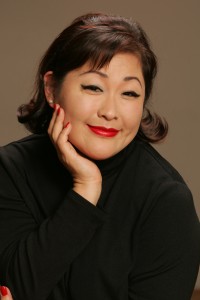 The advice I would give to young professional women today is: Don’t EVER take “no” for an answer. Whatever your dream is, visualize it, and plow through every day to see your dream become reality. Other people’s voices will drive you off your course, but your OWN voice and vision should be be more powerful.
The advice I would give to young professional women today is: Don’t EVER take “no” for an answer. Whatever your dream is, visualize it, and plow through every day to see your dream become reality. Other people’s voices will drive you off your course, but your OWN voice and vision should be be more powerful.
SK: What was your biggest accomplishment?
EG: My biggest accomplishment was getting out of the wheelchair. My second is the success of my 35 years of marriage to my husband, Alan. Third is how great my 2 sons have become wonderful men.
SK: You’ve been truly blessed. You will be on a PBS program called “Asian America.”
EG: I already host and produce my segments on “Asian America.” I write for many publications, I perform comedy all over the US, and I am on the Jewish Network.
SK: What is your definition of success?
EG: My success is that so many people respect and love me.
SK: What is your key to your success?
EG: I respect and love so many people. I can turn unhappy people to find happiness. I am grateful for my life. I am grateful that I believe in God, which helps me believe in and encourage other people.


